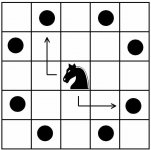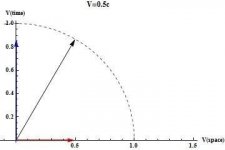I'm looking forward to watching Ex Machina (on Film4 at 11.20pm tonight).
It has been given a Four Star rating!
I happen to have a Hard Copy on Digital Versatile Disc of this movie. TBH, if you stay up tonight to watch it, after all the football excitement of Liverpool versus Real Madrid, you will surprise me.
I did detect a couple of Plot-holes in the Movie.
Surely the Helicopter was expecting to pick up Caleb? Not Ava?
How did Ava recharge her battery once leaving the Research Facility?
Just sayin' 🙂
Last edited:
You know I'm not a footie fan, Steve!
Fitba' is a game played by players with truncated icosahedron shaped balls. ⚽
The modern soccer ball is the shape of a Buckminster Ball consisting of 20 hexagonal and 12 pentagonal panels.
https://www.gcsescience.com/a38-buckminsterfullerene.htm
The shape is also a truncated icosohedron except that it is more spherical, because the panels bulge due to the pressure of the air inside.
Did you know that the black panels help players to perceive any swerve on the ball?
Regarding Ex Machina, I will probably record it on a DVD-RW to watch at a more convenient time (and to fast forward through the adverts!).
Fitba' is a game played by players with truncated icosahedron shaped balls. ⚽
The modern soccer ball is the shape of a Buckminster Ball consisting of 20 hexagonal and 12 pentagonal panels.
https://www.gcsescience.com/a38-buckminsterfullerene.htm
The shape is also a truncated icosohedron except that it is more spherical, because the panels bulge due to the pressure of the air inside.
Did you know that the black panels help players to perceive any swerve on the ball?
Regarding Ex Machina, I will probably record it on a DVD-RW to watch at a more convenient time (and to fast forward through the adverts!).
I always take a charger on my person when I travel for those inconvenient moments when my battery may go flat.
I have finally finished my current Carlo Rovelli Physics book:
https://www.theguardian.com/books/2017/jan/21/reality-is-not-what-it-seems-by-carlo-rovelli-review
The Journey to Quantum Gravity. One must stay up to speed with the latest theories. We thought it was all particles and fields. But no. Everything is Covariant Quantum Fields. 😕
I knew it was going to be a combination of Quantum Theory, General Relativity and Information Theory and Entropy.
We did Shannon and Boltzmann Entropy recently, of course.
The minimum Planck length that is quantised to make the fabric of Space is Lp = SQRT (h bar x G /c^3)
General Relativity says Spacetime is by 8 Pi G x The Metric Tensor.
Where loop quantum gravity gets clever is it adds a familiar half unit which we have seen in Electron spin in atoms:
Area A of Quantised Space = 8 Pi Lp^2 SQRT j(j+1)
with j = 1/2, you get the smallest area. But j can be 1, 3/2 etc.
Time sort of disappears into a statistical idea like Black Hole Entropy.
Well that's about where I have got to. My little brain is quite confused. But it makes more sense than String Theory, IMO.
https://www.theguardian.com/books/2017/jan/21/reality-is-not-what-it-seems-by-carlo-rovelli-review
The Journey to Quantum Gravity. One must stay up to speed with the latest theories. We thought it was all particles and fields. But no. Everything is Covariant Quantum Fields. 😕
I knew it was going to be a combination of Quantum Theory, General Relativity and Information Theory and Entropy.
We did Shannon and Boltzmann Entropy recently, of course.
The minimum Planck length that is quantised to make the fabric of Space is Lp = SQRT (h bar x G /c^3)
General Relativity says Spacetime is by 8 Pi G x The Metric Tensor.
Where loop quantum gravity gets clever is it adds a familiar half unit which we have seen in Electron spin in atoms:
Area A of Quantised Space = 8 Pi Lp^2 SQRT j(j+1)
with j = 1/2, you get the smallest area. But j can be 1, 3/2 etc.
Time sort of disappears into a statistical idea like Black Hole Entropy.
Well that's about where I have got to. My little brain is quite confused. But it makes more sense than String Theory, IMO.
The minimum Planck length that is quantised to make the fabric of Space is Lp = SQRT (h bar x G /c^3)
This minimum Planck length may be regarded as an individual pixel of a pixilated spacetime!
In other words, spacetime may not be perfectly smooth, but rather made of incredibly small discrete units.
A spacetime pixel is so small that if you were to enlarge things so that it becomes the size of a grain of sand, then atoms would be as large as galaxies.
Astrophysicists around the world are on the hunt for this pixelation because it is a prediction of quantum gravity.
I would say it is probable that there is not an infinite small distance/size of things but rather, in the "end, either here or there, i.e. a digital world where quantum probability reigns compleatly. When you are there, your next move is not arbitrarily long but you will try in one direction an aim for a "short" jump but in reality you ended up slightly to the right and twice the distance. This is the spot you end up in even if you try again a little more to the left and a bit harder. The question is what structure this digital 3D (4) has? Ordered cubes? Of course not "visible" in any way but determinable due to where "things" can be positioned. So in fact, a smaller distance could be defined but in any imaginable "reality", n.o.t.i.n.g could be located between the "Least Locatable Location" - LLL. You heard it here first ;-D
This probable also implies that the universe is not infinitely large - i.e. its mass is finite. This is good because then we can have a next big crunch 😉
But where can we find 0K?
//
This probable also implies that the universe is not infinitely large - i.e. its mass is finite. This is good because then we can have a next big crunch 😉
But where can we find 0K?
//
your next move is not arbitrarily long but you will try in one direction an aim for a "short" jump but in reality you ended up slightly to the right and twice the distance.
Are we back to your chessboard analogy, TNT?
Your move sounds similar to that of the Knight, which can jump one square horizontally and end up two squares vertically. 😉
Attachments
One of the ideas the book tried to convey is that your space can be thought about and measured intrinsically. Gauss did this. Talked about intrinsic curvature. We usually view things extrinsically.
So if you live on the round Earth, a 2-sphere, and move around it seems infinite. But actually it is finite but bounded, er, I think. How it looks from up in space. And curious things happen to triangles when you move around a long way. The angles don't add up to the flat space Euclidian idea of 180 degrees. It's curved space.
So in our Universe, we are seeing it from the surface of what might be a 3-sphere or a 4-sphere. From the inside. So we get in a muddle thinking about how it is from the outside. And get confused about what it might be expanding into.
Hope that makes sense.
Another idea is about information. If you have a black and a white ball in a bag: I draw one and you draw one. I can guess that your ball is a different colour from mine! This is like quantum entanglement and what I think you would call a half unit of information. In the Quantum World, often measuring say the electron spin on one axis, you destroy information about what the spin is on the other axis.
All very strange really. Best not to lose sleep over these things.
So if you live on the round Earth, a 2-sphere, and move around it seems infinite. But actually it is finite but bounded, er, I think. How it looks from up in space. And curious things happen to triangles when you move around a long way. The angles don't add up to the flat space Euclidian idea of 180 degrees. It's curved space.
So in our Universe, we are seeing it from the surface of what might be a 3-sphere or a 4-sphere. From the inside. So we get in a muddle thinking about how it is from the outside. And get confused about what it might be expanding into.
Hope that makes sense.
Another idea is about information. If you have a black and a white ball in a bag: I draw one and you draw one. I can guess that your ball is a different colour from mine! This is like quantum entanglement and what I think you would call a half unit of information. In the Quantum World, often measuring say the electron spin on one axis, you destroy information about what the spin is on the other axis.
All very strange really. Best not to lose sleep over these things.
Last edited:
Not really. Dont complicate things. We are all in one and the same 3D space, moving on in time.
//
//
Another idea is about information.
The following question was asked by Claude Shannon, the inventor of Information Theory, in 1948.
"Which is greater? The number of atoms in the universe or the number of chess moves?"
Here's a clue: There are between ten quadrillion vigintillion and one-hundred thousand quadrillion vigintillion atoms in the universe (10^78 to 10^82).
https://en.wikipedia.org/wiki/Shann...ian,game lasting about 40 such pairs of moves.
Attachments
We are all in one and the same 3D space, moving on in time.
To be exact, we are all in one and the same 4D spacetime through which we travel at a constant speed that consists of both a movement through space and a movement through time.
When you move faster through space, your time component will be smaller compared to someone standing still.
Attachments
I'd go for chess moves.I'd go with atoms 🙂
//
My guess, cuz number of atoms is physics, number of moves is math, where numbers can be way larger.
Another tricky one is the speed of the end of a long segment line, spinning like the beam of a lighthouse.
It can exceed the speed of light.
This model of a lighthouse beam is not bound by physics laws, because it is math.
Another tricky one is the speed of the end of a long segment line, spinning like the beam of a lighthouse.
It can exceed the speed of light.
Matter can not exceed the speed of light, but there is no matter at the end of a rotating segment line.
I presume that is why what you say is mathematically possible.
I see this listed as the lighthouse paradox. https://en.wikipedia.org/wiki/Light... which,one object to shine on a second object.
I can tell you, but I'd have to kill you.Where does the ocean water go when it flows over the edge of the world?
As for the universe, it's not really expanding into anything, it's just getting bigger acceleratingly. I was just reading an article that the "Big Crunch" is out...and due to expansion it seems other galaxies will recede out of sight. Seemed light they can recede apparently faster than the speed of light or some such.
Alternative hypothesis: the universe is expanding into Pork Soda...
I'd go with atoms 🙂
I'd go for chess moves.
The word "go" is of unwitting relevance here!
The game of "Go" has more than 10^170 moves, making it a googal times more complicated and varied than Chess and dwarfing the number of atoms in the Universe!
- Status
- Not open for further replies.
- Home
- Member Areas
- The Lounge
- What is the Universe expanding into..


